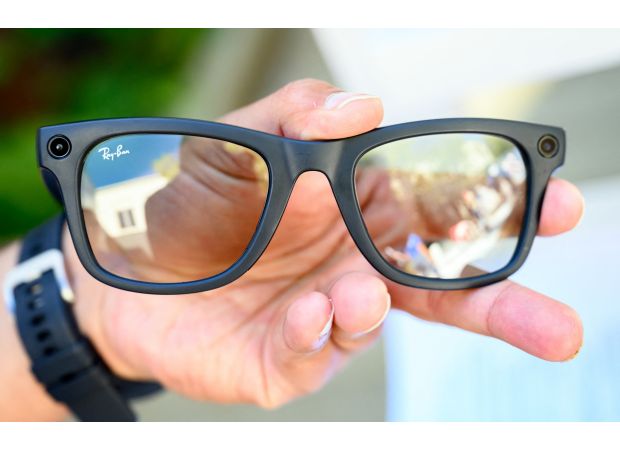Students secretly identify strangers with smart glasses
Strangers can now be recognized and located through a simple glance, including their home addresses.

Have you ever thought about the potential dangers of wearing smart glasses? Well, two Harvard students have uncovered a shocking truth that may make you think twice before putting on a pair. These aren't just any ordinary Ray-Bans, they have the ability to identify complete strangers and even track down their addresses. It may sound like something straight out of a sci-fi movie, but it's a reality that we need to be aware of.
The students, AnhPhu Nguyen and Caine Ardayfio, created a program that could analyze video footage captured by Meta's high-tech Ray-Bans using artificial intelligence. As people walked by, the glasses would stream visual information which was then monitored by an LLM. Through reverse facial recognition, they were able to identify dozens of individuals and gather personal information such as addresses, phone numbers, and even relatives.
This technology has the potential to change the way we live our lives. Facebook founder Mark Zuckerberg predicts that smart glasses will become the new smartphones, making it nearly impossible for people to disappear into a crowd. AnhPhu Nguyen, in a demo video, demonstrated just how easy it was to obtain personal information from someone just by looking at their face through the glasses. The glasses would stream the video straight to Instagram and a computer program would do the rest.
The students, however, did not make their technology available to the public. Their intention was simply to showcase its capabilities and warn people of the potential dangers. They even provided tips on how to protect yourself from being exposed by this technology, such as requesting the removal of your data from public databases like PimEyes and FastPeopleSearch.
Although removing yourself from these databases may protect you from amateur attempts like this one, it may not be enough to shield you from organizations with more extensive search powers, such as the police or government. Scammers, on the other hand, would have a field day with this technology. They could easily gather personal information about strangers and use it to build a rapport, making their victims more likely to trust them.
The students demonstrated how this could work in real life by using the information they gathered to start conversations with the people they identified. Their goal was not to misuse the technology, but to raise awareness about its capabilities and the potential risks it poses. They urged people to set up two-factor authentication on sensitive apps and be cautious about sharing personal information online.
In a world where our data can be exposed at a glance, it's important to be aware of the risks and take necessary precautions. The students' project, called I-XRAY, serves as a reminder that we should be mindful of our privacy and the power of technology.
9 Views






